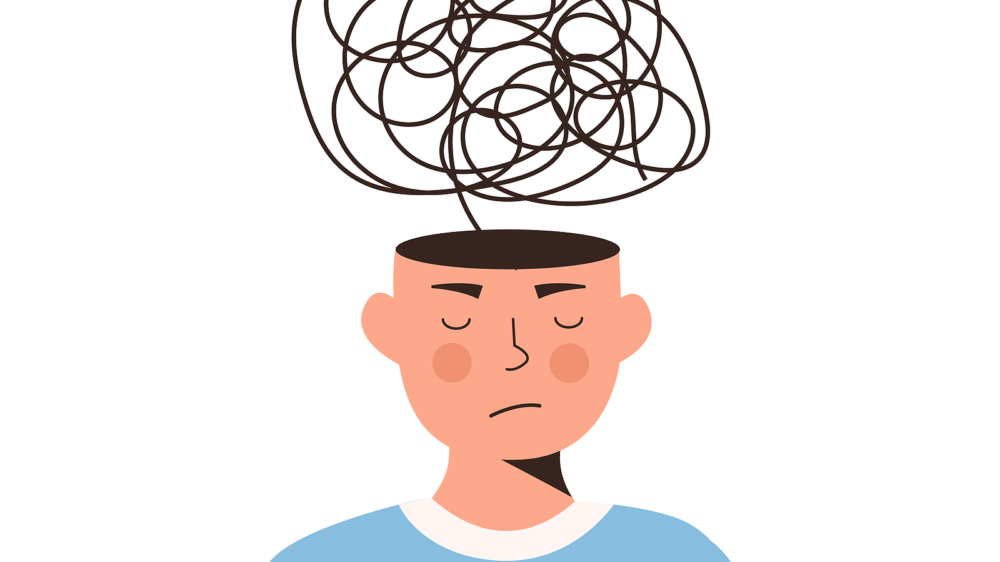How to Know if Your Anxiety Is Healthy or Unhealthy? Tips From an Anxiety Therapist in Atlanta, GA
Anxiety. It’s a word tossed around frequently. We hear it used all the time to explain a feeling of stress, worry, or overwhelm. While it is a word we hear frequently, many people don’t know the difference between anxiety which is healthy, and anxiety which is detrimental to our well-being. Anxiety can sneak in, and we can fail to recognize when it is taking over and causing us unnecessary stress. This blog will help you recognize when your anxiety is becoming harmful to your mental health and physical health.
 Healthy vs. Unhealthy Anxiety:
Healthy vs. Unhealthy Anxiety:
While anxiety is a natural human emotion, serving as a built-in alarm system alerting us to potential threats, the line between a healthy response and a debilitating burden can be blurry. Understanding the key differences between healthy and unhealthy anxiety is crucial for navigating the complexities of this common emotion.
Both healthy and unhealthy anxiety involve feelings of worry, apprehension, and physical symptoms like increased heart rate or sweating. However, they differ in key aspects:
Healthy Anxiety:
- Focuses on real threats: It arises in response to genuine threats or challenges, motivating you to prepare and perform well. For example, feeling anxious before a job interview can encourage you to practice your answers and dress appropriately.
- Temporary: It subsides once the threat is addressed, or the challenge is overcome. In the interview example, your anxiety likely lessens after the interview is over.
- Manageable: You can typically manage it using healthy coping mechanisms like relaxation techniques, deep breathing, or positive self-talk.
- Promotes growth: It can push you to improve and achieve your goals. The interview anxiety might motivate you to research the company and prepare responses beforehand.
Unhealthy Anxiety:
- Focuses on unrealistic threats: It often fixates on exaggerated or unlikely dangers, leading to excessive worry about things beyond your control.
- Persistent: It doesn’t subside even when the perceived threat is gone or the situation is resolved.
- Disruptive: It significantly interferes with daily life, hindering your ability to function at work, school, or in relationships.
- Detrimental: It can lead to negative health consequences like trouble sleeping, difficulty concentrating, or avoidance behaviors.
Here’s an analogy: Imagine anxiety as a smoke alarm. Healthy anxiety is like the alarm going off when there’s actual smoke, prompting you to act. Unhealthy anxiety is like the alarm going off constantly, even when there’s no smoke, causing unnecessary stress and disruption.
Examples of Healthy and Unhealthy Anxiety
Healthy Anxiety:
- Feeling nervous before a big presentation: This motivates you to rehearse your speech and prepare well, leading to a confident and successful presentation.
- Feeling anxious about an upcoming exam: This encourages you to study diligently and review your materials, leading to better performance.
- Feeling cautious while walking alone at night: This prompts you to stay alert and choose well-lit paths, potentially avoiding a dangerous situation.
Unhealthy Anxiety:
 Constantly worrying about failing an exam even after studying extensively: This excessive worry can lead to difficulty concentrating while studying and hinder your performance in the exam.
Constantly worrying about failing an exam even after studying extensively: This excessive worry can lead to difficulty concentrating while studying and hinder your performance in the exam.- Avoiding social gatherings due to fear of being judged by others: This persistent fear prevents you from building connections and enjoying social interactions, hindering social life.
- Persistent fear of having a heart attack: This fear leads you to constantly check your blood pressure and you find yourself noticing every ache or sensation in your body.
Impact of Unhealthy Anxiety on our Mental Health:
Unhealthy anxiety, characterized by its persistent and intrusive nature, can significantly hinder your ability to live and feel present in several ways:
Preoccupation with the future or past:
Unhealthy anxiety often involves dwelling on “what ifs” and worst-case scenarios about the future or replaying past events with regret or worry. This constant mental churn prevents you from fully engaging in the present moment. Instead of enjoying a conversation with friends, you might be consumed by worries about an upcoming presentation.
Difficulty focusing and concentrating:
The constant loop of anxious thoughts can make it challenging to focus on the task at hand. This can affect your performance at work or school, hinder your ability to learn new things, and even interfere with simple daily activities like reading or watching a movie.
Heightened sensitivity to the environment:
People with unhealthy anxiety may become hyper-aware of their surroundings, constantly scanning for potential threats. This can be exhausting and make it difficult to relax and enjoy the moment.
Avoidance behaviors:
To escape the discomfort caused by anxiety, individuals may engage in avoidance behaviors. This could involve avoiding social situations, public places, or any situation perceived as triggering. While avoidance may offer temporary relief, it reinforces the pattern of anxiety in the long run and prevents them from developing healthy coping mechanisms.
Emotional and physical exhaustion:
The constant mental and emotional strain of managing persistent anxiety can lead to fatigue, irritability, and difficulty sleeping. This physical exhaustion further hinders their ability to feel present and engaged in daily life.
Difficulty connecting with others:
The social aspect of life can also be significantly impacted by unhealthy anxiety. Social interactions may be perceived as threatening, leading to social withdrawal and difficulty forming or maintaining healthy relationships.
Decreased joy and sense of fulfillment:
Living with constant anxiety can take a toll on your overall well-being. The inability to fully engage in the present moment and savor positive experiences can lead to a decreased sense of joy and fulfillment in life.
By understanding the nuances of healthy and unhealthy anxiety, you can learn to manage your emotions and live a more fulfilling life.
In summary:
 Healthy anxiety acts as a signal, prompting you to act and prepare for real challenges. It motivates you to perform well and achieve your goals, ultimately contributing to personal growth. Unhealthy anxiety, however, becomes a constant source of worry and fear, often fixating on unrealistic threats and hindering your ability to live a fulfilling life.
Healthy anxiety acts as a signal, prompting you to act and prepare for real challenges. It motivates you to perform well and achieve your goals, ultimately contributing to personal growth. Unhealthy anxiety, however, becomes a constant source of worry and fear, often fixating on unrealistic threats and hindering your ability to live a fulfilling life.
Begin Anxiety Therapy in Atlanta, GA
It’s important to remember that these are just examples, and the line between healthy and unhealthy anxiety can be blurry. If you’re struggling with persistent and disruptive anxiety that interferes with your daily life, seeking professional help from a therapist or counselor is highly recommended. They can guide you toward managing your anxiety effectively and living a happier, healthier life. At Informed Therapy Group, we have several providers who specialize in treating anxiety and offer several treatment modalities for addressing anxiety symptoms. Don’t wait to get the support you deserve. Start your therapy journey by following these simple steps:
- Reach out for a free consultation
- Meet with a caring therapist from our team
- Start coping with anxiety in healthier ways!
Other Services Offered with Informed Therapy
Anxiety therapy isn’t the only service offered by Informed Therapy Group. Our team understands that you may be struggling with more than one mental health concern. This is why we are happy to offer support with therapy for depression, therapy for stress management, Postpartum therapy, and therapy for grief and loss. We also specialize in couples therapy and pregnancy counseling. To learn more about Informed Therapy read About Us, FAQs, and our blog!


